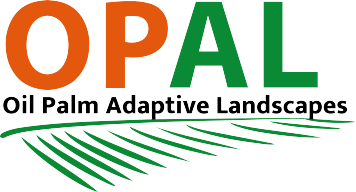Research
Our research projects cover ecological land use and land management processes, especially those relating to the form and function of forests and woodlands.
Research themes include plant-pollination processes, forest and landscape restoration, and ecological functions in landscape mosaics. We are also interested in decision-making processes that shape environmental outcomes. Recent work in Scotland is pursuing systems orientated approaches by which land-based climate mitigation can be delivered at scale. This includes consideration of integrated land management, wood-based bio-economies, and innovative financing instruments - explored through participatory engagement across public, private, and non-governmental actors.
More information on research at the Ecosystem Management Group:
Ongoing Research

external pageMainWoodcall_made: Mainstreaming Wood Construction
(Jaboury Ghazoul)
MainWood is an innterdiciplinary scientific consortium based in Switzerland, that rethinks the future of wood production and construction - from climate impacts and ecology to wood products innovation and architecture (and everything in between). This research offers an essential scientific base towards the transition to sustainable cities and bioeconomies, in Switzerland and beyond.
Duration: 2023-2026
Partners:
external pageSwiss Federal Institute for Forest, Snow and Landscape Research (WSL)call_made
external pageSwiss Federal Laboratories for Materials Science and Technology (Empa)call_made
external pageÉcole Polytechnique Fédérale de Lausanne (EPFL)call_made
Funder: external pageETH boardcall_made

external pagePAPPUS: Plants and People in Urban Green Spacescall_made
(Sebastian Ruile with Marco Moretti from WSL and Jaboury Ghazoul)
The goal of the project PAPPUS is to understand how decision-makers affect plant assemblages present in different Urban Green Spaces (UGS), and how their decisions affect the ecological and human benefits that can be realized from UGS in a changing climate. The originality of PAPPUS lies in the strong integration of social, ecological, and climatological theories and methods, together with its use of a mechanistic and predictive modelling approach to assess societal preferences and management practices related to vegetation in different UGS and their effects on biodiversity, microclimate, and human benefits.
Duration: 2023-2027
Partners: WSL
Funder: external pageSwiss National Science Foundationcall_made
NELAND: Negotiating Landscape Transitions
(Jaboury Ghazoul and Ivan Novotny)
The project aims to investigate various landscape options that foster the revitalization of rivers in Tayside, Scotland. The well-being of local communities is closely tied to the quality of rivers, which, in turn, is linked to the provision of ecosystem services. Revitalising rivers and watersheds poses a formidable challenge, especially given the complex social and ecological arrangements across landscapes. This requires cooperation among a diverse array of stakeholders, with often conflicting interests. The project seeks to comprehend these conflicting perspectives and worldviews to foster mutual understanding and inspire collaborative efforts. To facilitate this collaboration, we employ a proven method: Strategy Games. These games are models of the socio-ecological system, crafted to simplify complexities, enabling players with divergent interests to explore and discuss alternative landscape scenarios and strategies.
Duration: 2023-2025

Planning a prosperous forest-infrastructure-matrix (seed project)
(Fritz Kleinschroth)
Roads and railways lines are expanding rapidly in the country of Lao PDR, and it remains unclear who wins and who loses from this development. This project explores the benefits and tradeoffs from infrastructure development for local communities, who need the forests and trees to sustain their lifelyhood.
Duration: 2022-2024
Partners:
external pageLaotian Forestry Research Centercallcall_made
external pageTree Diversity for Resilient Landscapes at the Alliance of Biodiversity and CIATcallcall_made
Funder: ETH for Development (ETH4D)

external pagePoshBeecall_made: Impact Of Agrochemicals On The Health And Reproduction Of The Solitary Wild Osmia Bicornis Bees
(Jaboury Ghazoul and Janine Schwarz)
Understanding how agrochemicals and other stressors affect Osmia bicornis under laboratory and semi-field conditions.
PhD thesis: Impacts of potentially interacting stressors on the solitary model bee species Osmia bicornis under laboratory and semi-field conditions Schwarz, Janine Melanie (2022)
Duration: 2018-2023
Funding: Horizon 2020 programme Research and Innovation under grant agreement No 773921 (via WBF-Agroscope)

Enhancing Biodiversity & Resilience in Agriculture
(Jaboury Ghazoul and Anne Dray)
This project's objective is to embed biodiversity and resilience thinking in intensive arable systems, to consolidate existing knowledge relating to farm and landscape practices to enhance biodiversity and resilience in intensive soy, maize, and wheat production systems.
Duration: 2021-2022
Partners:
ETH World Food System
external pageInternational Food Policy Research Institute (IFPRI)call_made
Funded by:
external pageBayer AGcall_made
Focus Forests
(Anne Dray, Claude Garcia and Fritz Kleinschroth)
Duration: 2020-2022
Partner (and Funded by):
external pageForest Stewardship Councilcall_made

external pageOPALcall_made - Oil Palm Adaptive Landscapes
(Jaboury Ghazoul, Anne Dray, John Garcia, and Claude Garcia)
Rapid expansion of oil palm can have detrimental impacts on the environment, food security, and rural livelihoods, yet also provides opportunities for poverty alleviation among marginal rural communities. Our work uses field research and participatory scenario development to explore how oil palm expansion across landscapes can be more effectively managed in Indonesia, Cameroon and Colombia.
PhD thesis: Improving Conservation Perspectives of Land-Use Change Policies in the Tropics Garcia Ulloa, John Alejandro (2016)
Duration: 2015-2021
Partners:
external pageÉcole Polytechnique Fédérale de Lausanne (EPFL)call_made
external pageWorld Wildlife Fund (WWF)call_made
external pageCenter forInternational Forestry Research (CIFOR)call_made
external pageFrench Agricultural Research Centre for International Development (CIRAD)call_made
external pageInstitut Pertanian Bogor (Indonesia)call_made
external pagePontifica Universidad Javeriana (Colombia)call_made
external pageSwiss Federal Institute for Forest, Snow and Landscape Research (WSL)call_made
Funded by:
external pageSwiss Programme for Research on Global Issues for Development (r4d programme)call_made
external pageSchweizerische Eidgenossenschaftcall_made
external pageSwiss Agency for Development and Cooperationcall_made
external pageSwiss National Science Foundation (SNSF)call_made
external pageLuc Hoffmann Institutecall_made

DAFNE: Decision Analytic Framework to explore the water-energy-food Nexus in complex transboundary water resource systems of fast developing countries.
(Fritz Kleinschroth)
Seeking to understand how dam construction is affecting land cover and ecosystem services in the Zambezi basin in southeastern Africa.
Duration:
2016-2020
Partners:
external pagePolitecnico Di Milanocall_made
ICRE8 Research Center
external pageKU Leuven, Department of Earth and Environmental Sciencescall_made
external pageUniversity of Aberdeencall_made
external pageUniversity of Osnabrückcall_made
external pageInternational Water Management Institute (IWMI)call_made
external pageAfrican Collaborative Center for Earth System Science (ACCESS)call_made
external pageUniversity of Zambiacall_made
external pageEduardo Mondlane Universitycall_made
external pageAddis Ababa University Water Land Resource Centercall_made
external pageVista Remote Sensing in Geosciences GMBHcall_made
external pageATEC-3D LTDcall_made
external pageEuropean Institute for Participatory Mediacall_made
Funded by:
Horizon 2020 programme Water 2015 of the European Union, GA no. 690268.

MOCA: Managing Trade-Offs in Coffee Agroforests
(Jaboury Ghazoul and Maike Nesper)
In the pursuit of short-term productivity, traditionally shaded coffee plantations are being intensified and converted to more open sun coffee systems. This project aims to understand how shade tree density and diversity management on organic and conventional farms can contribute to more sustainable and resilient coffee production systems.
Duration: 2012-2017
Partners:
external pageShivamogga University of Agricultural and Horticultural Sciencescall_made
external pageCenter for International Forestry Research (CIFOR)call_made
external pageFrench Agricultural Research Centre for InternationalDevelopment (CIRAD)call_made
Funder: ETH World Food System (WFS)
external pageLandscapes as Carbon Sinkscall_made
(Jaboury Ghazoul and Nicole Ponta)
Landscapes as Carbon Sinks, funded by EIT through Climate KIC, is exploring options for the systemic transformation of land use sectors to substantially contribute to Scotland’s 2045 net-zero carbon target. The initiative brings together research, policy development, business innovation, access to financial investment, and land management expertise to co-design and deliver low-carbon economies and landscapes. Landscapes as Carbon Sinks is led by Jaboury Ghazoul, and is a collaboration between ETH Zurich and the University of Edinburgh, drawing on expertise from partners that includes the Scottish Government, a range of public and private actors in Scotland, and academic partners in Europe.
Opportunities And Challenges For Scaling Up Forest Restoration
(Daniella Schweizer)
The projects analyzed the perceptions of a variety of actors across scales engaged in forest and landscape restoration (FLR) on the implementation of FLR principles, the challenges faced, and promising strategies employed. Despite great variation in project socioeconomic and environmental context, we found similar challenges in the implementation of a landscape scale project. Namely, issues of governance and short term project duration were commonly mentioned. To this end, actors are seeking to create a market economy around restored landscapes to attain sustainability of their actions and to further involve government support in the form of legislations and incentives that foster restoration.
